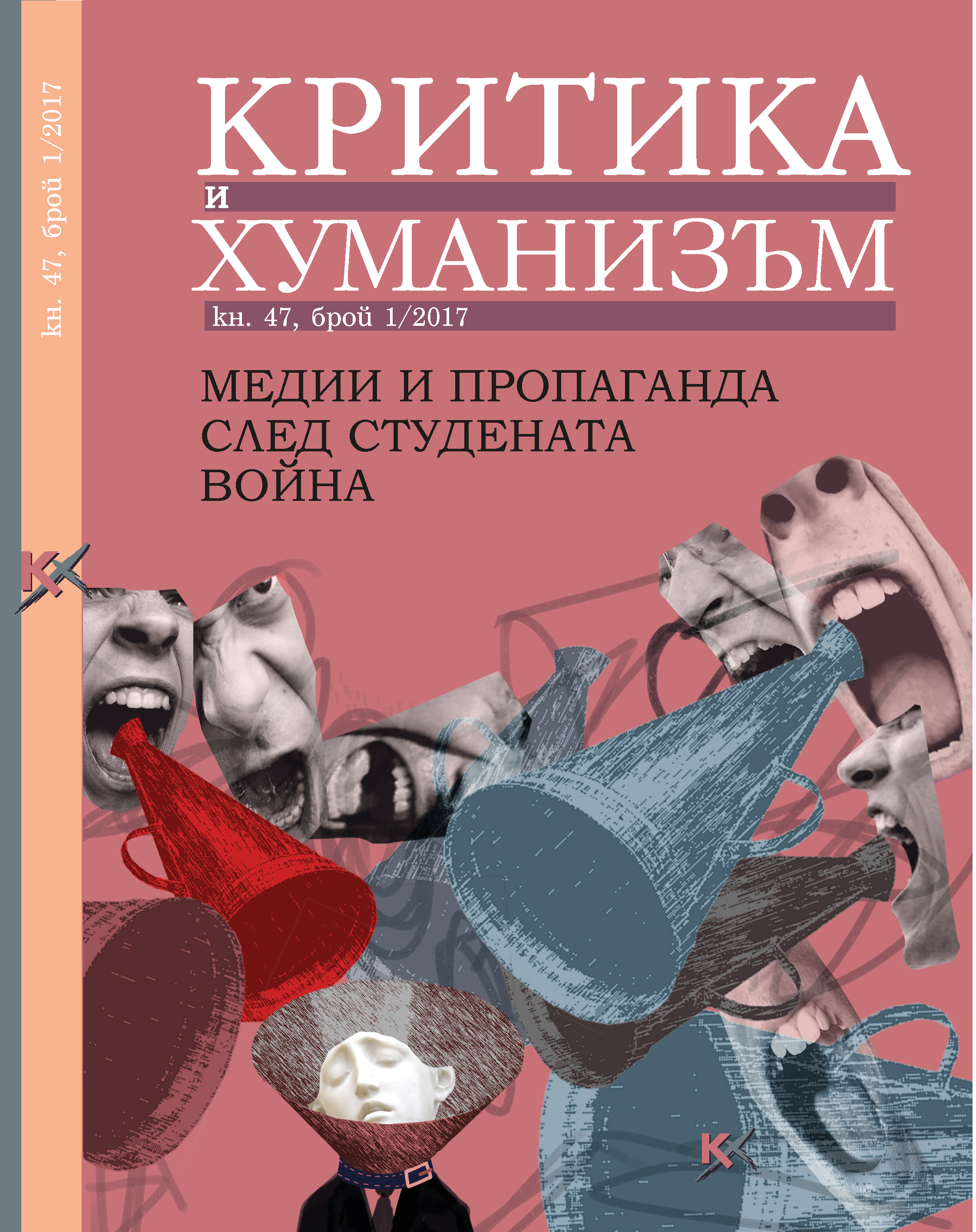Експроприиране на недоволството: български популизъм, локални интереси и руска пропаганда
Co-opting Discontent: Bulgarian Populism, Local Interests and Russian Propaganda
Author(s): Milena Iakimova, Dimitar VatsovSubject(s): Politics / Political Sciences, Politics, Philosophy, Political Philosophy, Civil Society, Sociology, Security and defense, Applied Sociology, Sociology of Politics, Politics and Identity
Published by: Фондация за хуманитарни и социални изследвания - София
Keywords: Bulgarian media; Russian propaganda; populism; oligarchic uses; hate speech; sovereignism
Summary/Abstract: Russian propaganda co-opts western grassroots criticism of liberalism and globalization, recasting both left and right populism in nationalist terms. Vice versa, local actors borrow the Russian propaganda package and use it for their populist purposes. This is the general finding of the analysis of Bulgarian media discourse, 2013-2016, analysis that proceeded in three steps: semantic analysis of the vocabulary of the anti-liberal and anti-democratic propaganda and extractionof specific keywords and catch phrases; frequency analysis of the usesof these words and phrases in 3080 on-line media outlets for four-year period; content-analysis of a sample of 3305 single publications from 8 typologically different media outlets. The analysis identified four simplistic and interrelated anti-liberal and antidemocratic theses:The US and NATO are a global hegemon/puppet-master which is pulling the strings both of Brussels and of national governments; Europe is dying because of its cultural decline (‘liberasty’) under the blows of the migrant invasion unleashed by the US, and because of the lame-duck, puppet European bureaucracy (‘Eurocracy’). In the final analysis, Europe is dying because it is united: the EU is a construction which serves the interests of the US and of global corporations, and it is an enemy of the European peoples; Russia is rising. Although it is a victim of Western aggression, Russia is a guardian of its age-old sovereignty and of traditional values, and it is actually the true saviour of Europe; Bulgaria’s liberal elites are venal: civic movements, human rights organizations, independent media outlets, pro-western politicians and parties are represented as an indistinguishable whole, and all of them are ‘foreignagents’ – puppets of foreign interests.The populist-propaganda discursive front developing in the Bulgarian publicsphere since 2013 is distinctly ‘pro-Russian’, although the data show that it is not always directly inspired by Russia. The content-analysis identified three different rationales of using those clichés.
Journal: Критика и хуманизъм
- Issue Year: 2017
- Issue No: 47
- Page Range: 51-68
- Page Count: 18
- Language: Bulgarian
- Content File-PDF

